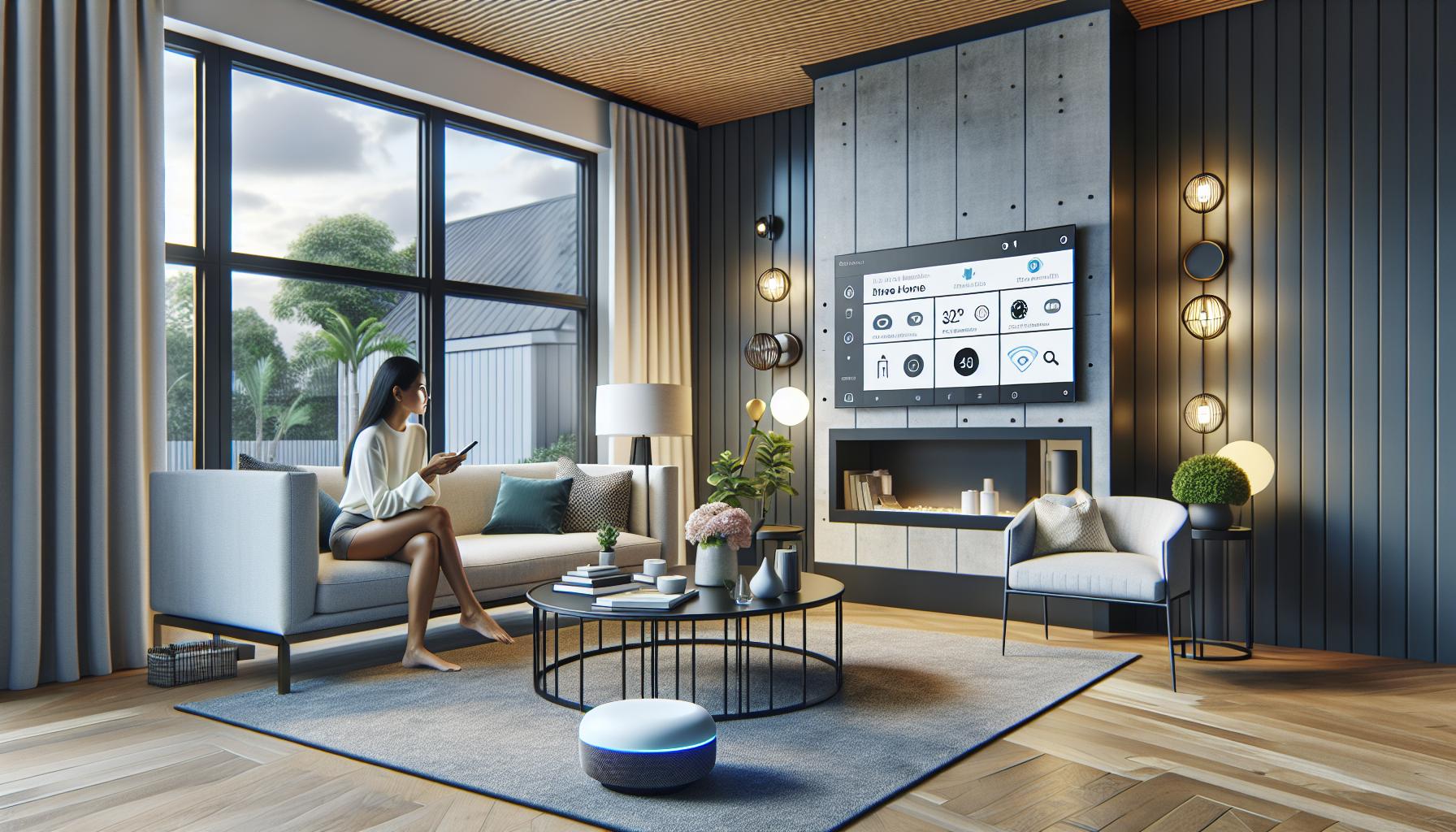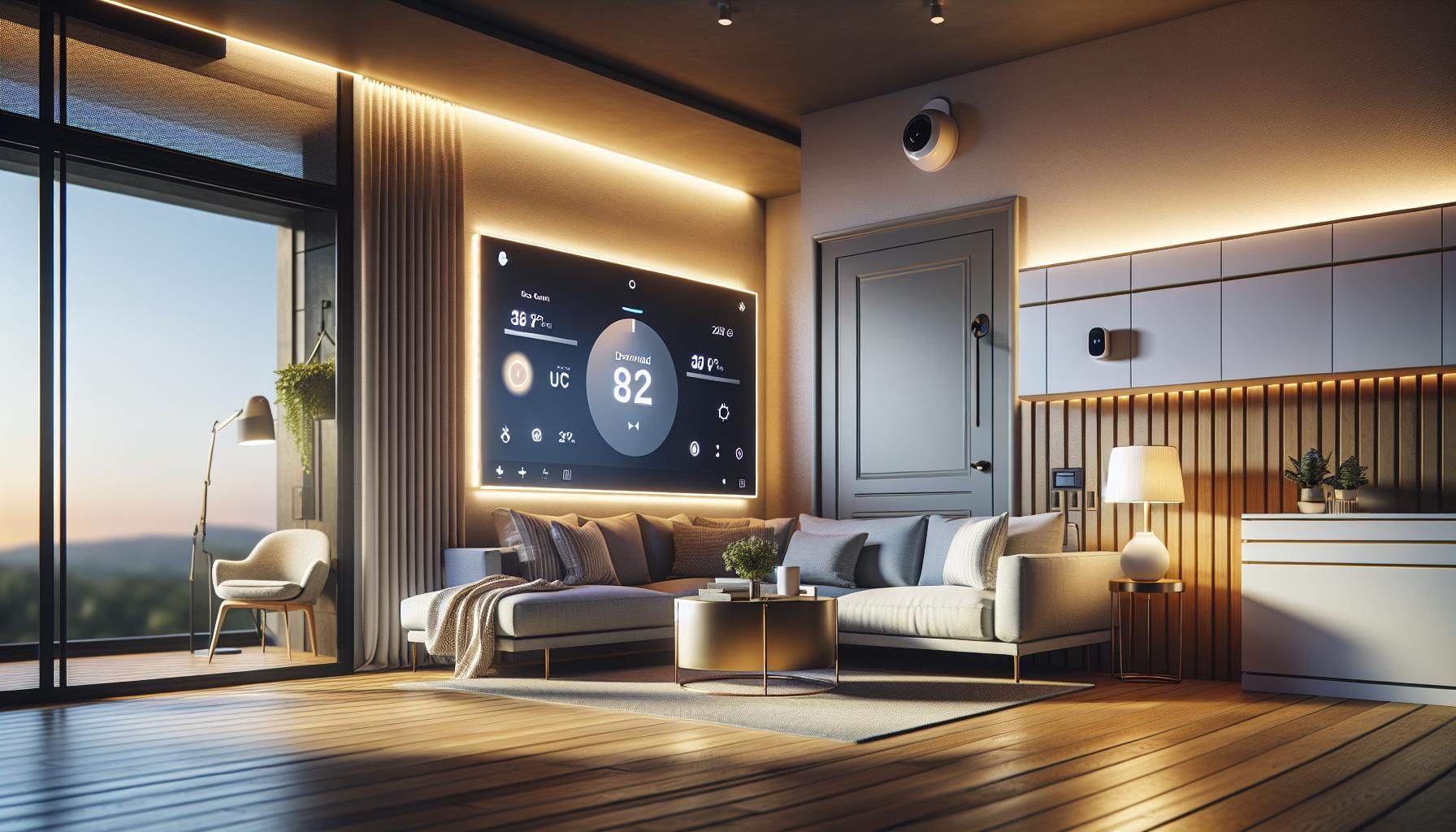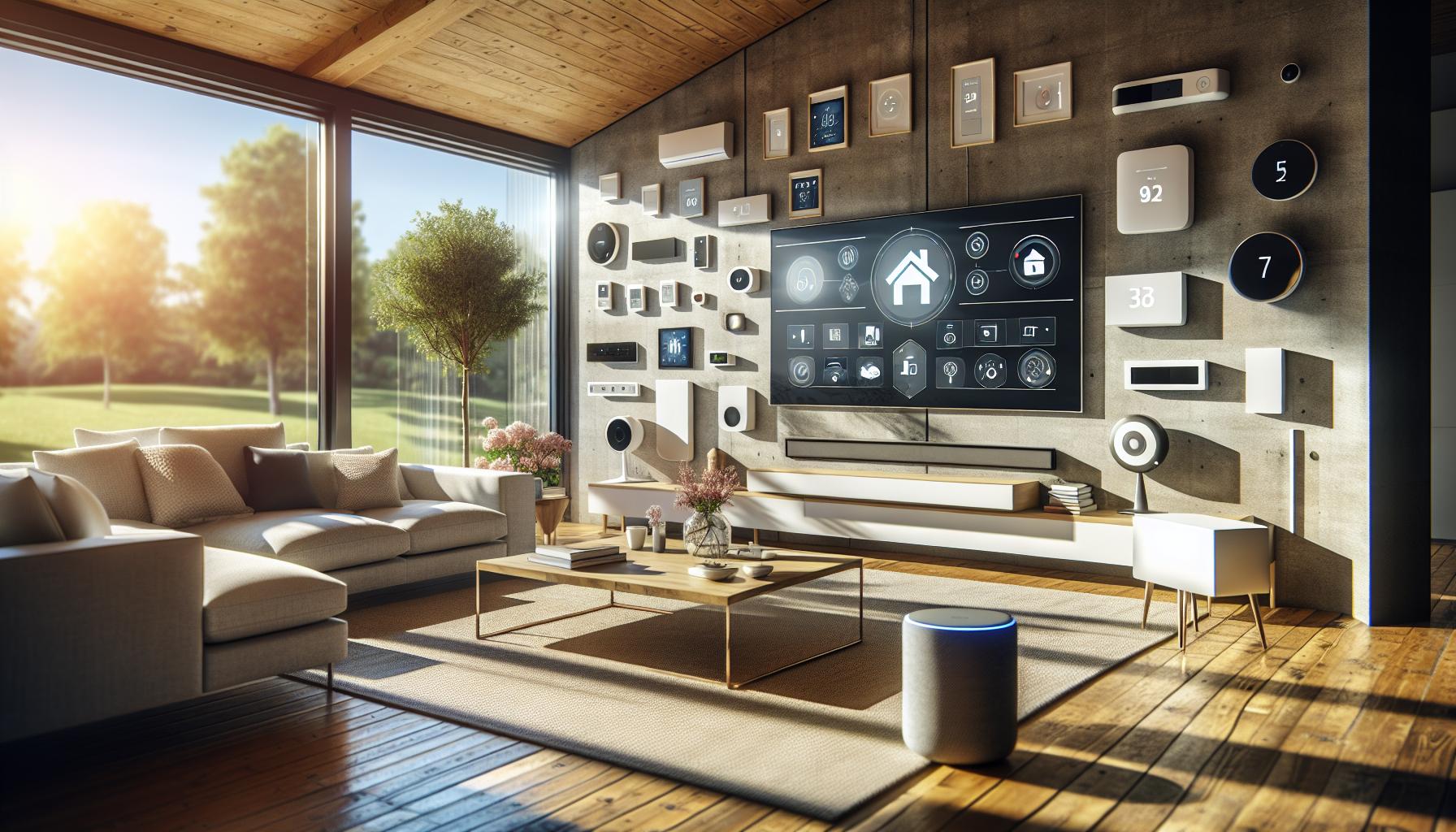Key Takeaways
- Smart Home Convenience: Smart home technology simplifies daily living by enabling control of various devices through voice commands and smartphone apps, enhancing overall convenience.
- Energy Efficiency: Innovations such as smart thermostats and lighting systems optimize energy usage, reducing utility bills and promoting sustainable living.
- Enhanced Security: Smart security systems provide real-time monitoring and alerts, offering homeowners increased peace of mind with features like remote access and automated notifications.
- Diverse Applications: Smart home technology encompasses a wide range of solutions, including smart lighting, appliances, entertainment systems, and gardening tools, catering to various homeowner needs.
- AI Integration: The integration of artificial intelligence allows smart devices to learn user preferences and automate tasks, improving efficiency and user experience in managing home systems.
- Future Trends: Emerging trends emphasize energy management systems and interoperability between devices, further enhancing smart home capabilities for a more responsive living environment.
Smart home technology is transforming the way people live, making everyday tasks easier and more efficient. With innovations emerging at a rapid pace, homeowners are discovering a world where convenience meets security. Imagine controlling everything in your home with just a voice command or a simple tap on your smartphone.
From energy-efficient appliances to advanced security systems, the possibilities are endless. These smart solutions not only enhance comfort but also promote sustainability and safety. As homeowners embrace this tech-savvy lifestyle, it’s time to explore some of the most exciting smart home technology ideas that can elevate any living space.
Smart Home Technology Ideas
Smart home technology ideas encompass various innovative solutions that enhance convenience and efficiency in daily living. These technologies allow users to control their homes through voice commands, smartphone apps, or automated systems. Exploring categories of smart home technologies reveals their diverse applications.
- Smart Lighting
Smart lighting systems offer customizable settings and automation. Users can adjust brightness, color, and schedules based on individual preferences. Integration with smart assistants enables voice-activated control.
- Smart Thermostats
Smart thermostats learn user behavior and preferences, optimizing heating and cooling. They can reduce energy consumption by adjusting the temperature when residents are away.
- Smart Security Systems
Smart security systems include cameras, alarms, and doorbell systems that provide real-time monitoring and alerts. They enhance home safety with remote access and control.
- Smart Appliances
Smart appliances, such as refrigerators and ovens, offer connectivity for remote monitoring and operation. Users can streamline meal preparation and grocery management through smart functions.
- Smart Home Hubs
Smart home hubs act as central control systems for various devices. They facilitate communication between devices, enabling a seamless smart home ecosystem.
- Smart Entertainment Systems
Smart entertainment systems allow users to stream content easily and control their media devices through voice commands. Integration with smart speakers enhances audio experiences throughout the home.
- Smart Blinds and Curtains
Smart blinds and curtains optimize natural light and privacy. They can be programmed or controlled remotely, contributing to energy efficiency.
- Smart Garden Systems
Smart gardening technology monitors soil conditions and automates watering. Users can maintain their gardens efficiently, even when away from home.
These smart home technology ideas not only improve daily tasks but also promote energy efficiency and security. Implementing these innovations can transform any living space into a more intelligent and responsive environment.
Benefits Of Smart Home Technology

Smart home technology offers a range of advantages that enhance daily living. Key benefits include improved security measures and significant energy efficiency.
Enhanced Security
Enhanced security measures from smart home technology include real-time monitoring and instant alerts. Smart security cameras provide remote access, allowing users to monitor their property from anywhere. Smart locks offer keyless entry and activity logs for added control. Alarm systems integrate with mobile devices, sending immediate notifications during unusual events. Homeowners experience increased peace of mind knowing that they can manage security settings remotely and receive automated alerts.
Energy Efficiency
Energy efficiency is a major benefit of smart home technology. Smart thermostats optimize heating and cooling based on user patterns, significantly reducing energy consumption. Smart lighting systems utilize sensors and scheduling features, ensuring lights operate only when needed. Energy-efficient smart appliances, such as those that adjust their energy usage automatically, contribute to lower utility bills. These innovations not only conserve energy but also promote sustainable living by minimizing environmental impact.
Popular Smart Home Technology Ideas

Smart home technology streamlines daily routines, providing comfort and efficiency. Several innovations enhance home automation, making living spaces more intelligent.
Smart Lighting Solutions
Smart lighting solutions enable homeowners to customize ambiance and automate lighting schedules. Devices such as smart bulbs offer remote control via smartphone apps, allowing users to change colors and dimming settings easily. Motion sensors activate lights when a person enters a room, conserving energy. Additionally, integration with voice assistants allows for hands-free commands, enhancing user experience.
Smart Thermostats
Smart thermostats optimize heating and cooling based on user habits, maximizing energy efficiency. They learn preferences over time and can create schedules to adjust temperatures when the home is occupied or unoccupied. Remote access through apps allows users to manage settings from anywhere, leading to reduced energy bills. Many models provide energy usage reports, helping homeowners understand consumption trends.
Home Security Systems
Home security systems offer robust protection through real-time monitoring and alerts. Smart cameras provide live video feeds, and motion detectors trigger notifications sent directly to smartphones. Keyless entry systems enhance convenience while improving security, allowing homeowners to grant access remotely. Integration with alarm systems ensures immediate alerts in case of unauthorized access, enhancing peace of mind.
Future Trends In Smart Home Technology

Smart home technology continues to evolve, pushing boundaries with innovative solutions that enhance daily living. Current trends demonstrate a strong shift towards integration with artificial intelligence and improved energy management systems.
Integration With AI
Integration with artificial intelligence revolutionizes smart home technology. AI-driven devices learn user preferences over time, enabling them to anticipate needs and automate tasks. Smart assistants respond to voice commands, providing hands-free control of various systems, from lighting to entertainment. AI algorithms also enhance security by analyzing patterns in real-time, alerting homeowners to unusual activities through smart cameras and sensors. Additionally, developers focus on creating seamless interoperability between devices, allowing them to communicate effectively and improve overall user experience.
Energy Management Systems
Energy management systems are becoming central to smart home technology. These systems utilize real-time data to optimize energy consumption, significantly reducing costs. Smart meters track usage patterns and provide insights into energy consumption, enabling users to make informed decisions. Advanced thermostats adjust heating and cooling automatically based on occupancy and preferences, promoting efficient energy usage. Furthermore, integration with renewable energy resources, like solar panels, allows homeowners to manage energy storage effectively, further enhancing sustainability efforts. These systems foster not only convenience but also a commitment to reducing carbon footprints.
From Automated Lighting to Advanced Security Systems
Smart home technology is revolutionizing the way people interact with their living spaces. By embracing these innovations homeowners can enjoy enhanced convenience and security while promoting energy efficiency. As technology continues to evolve the possibilities for creating a more intelligent home are limitless.
From automated lighting to advanced security systems these solutions not only simplify daily tasks but also contribute to a sustainable lifestyle. As more individuals explore and implement smart home ideas their homes will become more responsive and attuned to their needs. The future of living is here and it’s smarter than ever.